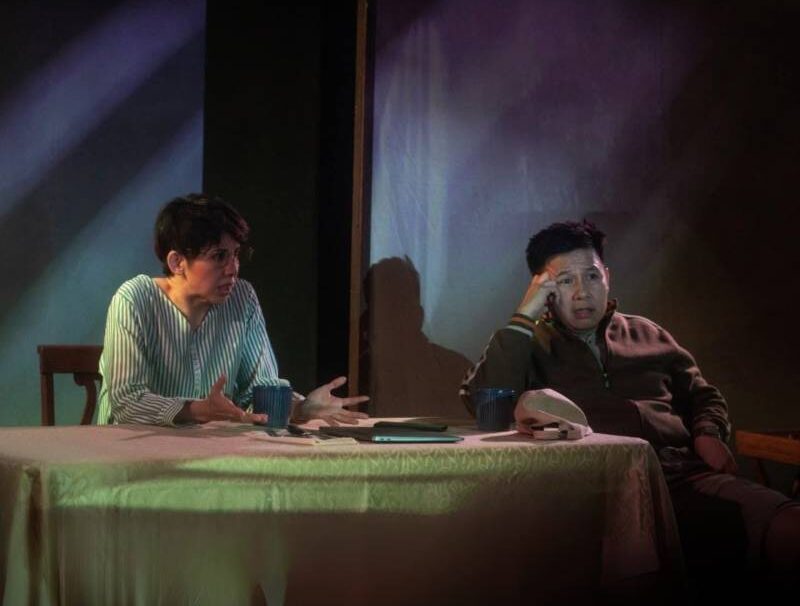A Filipino teleserye with a tragic moral reckoning

In a single person’s lifetime, there is often that one piece of literature—whether a book, play, or film—that changes them completely: the way they see the world, the way they make decisions, or the way they build a life of purpose.
For this author, there are two: Rachel Carson’s “Silent Spring” (1962), her seminal work that documented the environmental destruction caused by synthetic pesticides—work that the chemical industry sought to discredit while public officials unquestioningly backed corporate claims; and Steven Soderbergh’s “Erin Brockovich” (2000), the American legal drama that followed one woman’s battle to expose groundwater contamination by a utility company.
Both stories share a singular soul: a lone figure seeking truth against powerful corporations whose actions risk the health and future of entire communities.
Last weekend at the Mirror Studio Theater in Makati, I witnessed material kindred to these two works—and at such an opportune moment. It was the opening weekend for “In the Eyes of People,” a production by Cast PH and Mad Child Productions, directed and adapted by Nelsito Gomez.
A free adaptation of Henrik Ibsen’s “An Enemy of the People” (1882)—a play interrogating the tension between public good and economic survival—this Philippine version localizes the story to a contemporary setting, proving how enduring Ibsen’s questions remain: Who owns the truth, and what does it cost to defend it?
At its core, the plot is simple but loaded: A mayor (Ron Capinding) prepares for the grand opening of Sta. Cristina’s new hot springs project, only for the project’s chief scientist (Jenny Jamora), who happens to be his sister, to discover an unknown bacterium that jeopardizes everything. A local journalist—who happens to be the scientist’s daughter—breaks the story without editorial approval, unleashing a two-hour moral storm about truth, profit, political ambition, credibility, and the gendered politics of misinformation.
Interconnected
What distinguishes “In the Eyes of People” from this simplistic trope is how deeply interconnected the characters are. It’s not just bureaucracy at war with science; it’s family members caught in a tangle of loyalties, ideals, and betrayals—a Filipino teleserye, but elevated to tragic moral reckoning.
By now, it should be clear: This is important work. In an election year where truth, trust, and public welfare hang in the balance, “In the Eyes of People” becomes not merely relevant, but urgent. It reminds audiences that the battle for truth is often waged within ourselves, among those closest to us, not merely against distant institutions.
And while Jamora and Capinding unsurprisingly deliver convincing, magnetic performances—each speaking with the weary conviction of the corrupted and the idealistic—“People” at times delivers a civics lecture more than it does a drama. In the best theater, ideas bloom like revelations; here, they land like bullet points on a PowerPoint.
But this work, forged over four years by a village of well-meaning creatives, carries a different kind of emotional propulsion—one Filipinos know intimately. It is what we call “gigil“—a word so culturally specific that the Oxford English Dictionary officially adopted it this year. Gigil traditionally describes “a feeling so intense that it gives us the irresistible urge to tightly clench our hands” on something adorable, but here it transmutes into political urgency: an intense frustration and desperate desire to act, especially after the 2022 elections.
“In the Eyes of People” feels like the creative release of that political gigil which you can hear in every line of dialogue. And in this context, a blunt message feels justified.
Still, I found myself wishing for more ambiguity. The best political dramas allow audiences to sit uneasily with moral complexity rather than prescribing the correct response. “People” is so determined to hammer its points that it robs the story of some emotional suspense.
Urgency
Even so, I cannot stress enough: “People” is a work that must be seen. My only sadness is that it risks preaching to the choir. The Mirror Theater’s 80-seat capacity and limited playdates inevitably draws a crowd that may already share its convictions. If the goal is to awaken new minds, then “In the Eyes of People” must be brought to larger public spaces, universities, and communities that might not otherwise encounter such perspectives. The message may be blunt—but perhaps bluntness is what the moment demands.
A memorable sequence near the end crystallizes this urgency: Tricia, the embattled scientist, devolves into “mad scientist” hysteria, stripping herself of dignity and threatening to swim in the contaminated springs to prove her point. It’s a chilling image—one that echoes “Don’t Look Up” (2021), Adam McKay’s satirical comedy where scientists warn of an extinction-level comet—only to be dismissed as alarmists.
In the same vein, “People” effectively extrapolates that kindred spirit of desperation in a world where expertise is trumped by optics and strategic messaging by the ruling class or corporate overlords.
Adapter-director Gomez notes that today, it’s harder to identify the enemy. That idea surfaces powerfully in the play’s ending, where the expected hero becomes morally compromised herself. It left me with a heavy feeling, realizing that in this system, even those who begin with pure intentions are not immune to corruption.
The flashing call to action in the end—VOTE MAY 12—landed hollow for me. Not because it was wrong, but because it reminded me that voting alone may not fix the rot following that final scene before curtain. Still, it’s a necessary call to arms.
Good theater often seduces before it instructs. “In the Eyes of People” forgoes seduction entirely—and maybe it’s right to do so. Maybe, in a world drowning in misinformation and manipulation, we no longer have the luxury of subtlety. Theater, too, must become a weapon for truth.
After all, if a single piece of literature or art can change the course of a life, perhaps this—this small, blazing work of theater—could change someone’s, too.

















